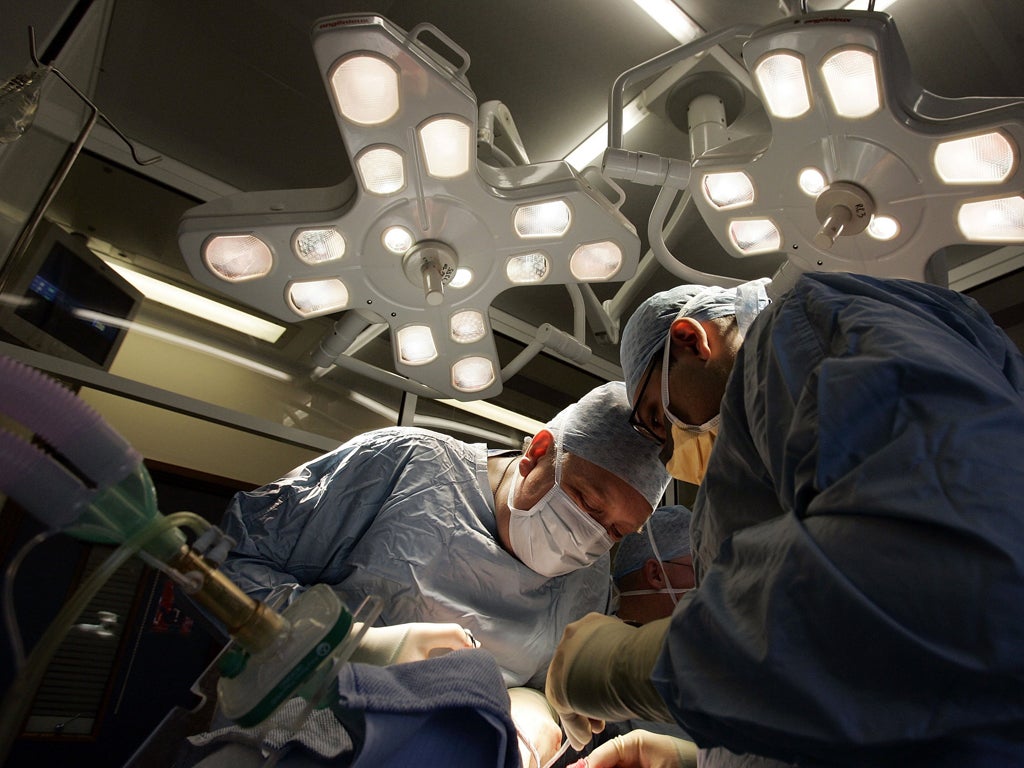Tories pay to hit NHS targets they had vowed to scrap
Hospitals and GPs given an extra £200m to cut waiting times in spite of pre-election pledge

Your support helps us to tell the story
From reproductive rights to climate change to Big Tech, The Independent is on the ground when the story is developing. Whether it's investigating the financials of Elon Musk's pro-Trump PAC or producing our latest documentary, 'The A Word', which shines a light on the American women fighting for reproductive rights, we know how important it is to parse out the facts from the messaging.
At such a critical moment in US history, we need reporters on the ground. Your donation allows us to keep sending journalists to speak to both sides of the story.
The Independent is trusted by Americans across the entire political spectrum. And unlike many other quality news outlets, we choose not to lock Americans out of our reporting and analysis with paywalls. We believe quality journalism should be available to everyone, paid for by those who can afford it.
Your support makes all the difference.Hospitals and GPs have been quietly offered an extra £200m in an attempt to hold down waiting times this winter. With little fanfare, the four new regional bodies that now oversee the NHS in England have been told they can each spend up to £50m in the next month to treat patients more quickly.
Andrew Lansley, the Health Secretary, told The Independent on Sunday the money from efficiency savings can be released "to the front line to enable people to access NHS services more quickly".
"This additional funding will mean the NHS can make even more progress in reducing the number of people who have to wait over a year for treatment," he added.
But critics say the emphasis on the 18-week target for treatment marks a U-turn for the Tories, who vowed in opposition to scrap centrally imposed deadlines. And it comes as the Government draws up a battle plan to pass its controversial Health and Social Care Bill into law.
This week the Commons Health Select Committee is expected to use a report on NHS spending to warn that the reforms – being debated in the Lords – are a distraction from the blueprint from the NHS chief executive, Sir David Nicholson, to save a total of £20bn by 2015. The committee, led by former Tory Health Secretary Stephen Dorrell, will say that the reforms are obstructing efforts to make the NHS more efficient. While health spending has been protected from cuts, increases are outpaced by growing demand. Average waits in November 2011 were 8.1 per cent, down 0.2 per cent on 2010. But there are some marked variations. For example, 99.1 per cent of geriatric medicine patients were seen within 18 weeks, compared with 83.9 per cent of trauma and orthopaedic conditions. In all, 47 trusts failed to meet the target to treat 90 per cent of admitted patients within 18 weeks. In November, 29,508 patients waited more than 18 weeks.
In December David Flory, the NHS deputy chief executive, wrote to the four new regional "clusters" offering £50m to "support improving and sustaining access" to services. The money must be returned by 15 February if it is not used.
Chris Ham, chief executive of the King's Fund think tank, said: "This government, having ostensibly given up on targets, has not done so. Andrew Lansley has been too focused on his legislation changing the organisation of the health service and maybe has lost sight a little of what really matters to patients."
The Government argues that the scale of the savings cannot be achieved without the reforms, which hand £60bn in health spending to new commissioning consortia led by GPs. Baroness Williams, the Liberal Democrat peer opposed to the reforms, claims Nick Clegg "realised that he had to read the Bill" only after a storm of protest from his party. "To be fair, he was up to his neck in everything else. I don't think he'd had time," she told the BBC Radio 4 programme David Cameron's Big Idea, to be broadcast today at 1.30pm.
Comment: 'We need some pragmatism along with the politics'
Mike Farrar, chief executiveof the NHS Confederation
"There is a sense of sleepwalking into some serious difficulties. We fully expect a number of NHS organisations to fall into difficulties this year – and the problems will only grow unless action is taken. If we are to keep the NHS sustainable in the long term, we need to be honest that this will mean fundamentally reorganising they way we deliver care in the best interests of patients. Some local hospital services will need to close or move into larger specialist centres.
"The Government's reforms are a distraction. We need some pragmatism and realism, along with the politics, if we are to steer the NHS through these choppy waters."
Join our commenting forum
Join thought-provoking conversations, follow other Independent readers and see their replies
Comments